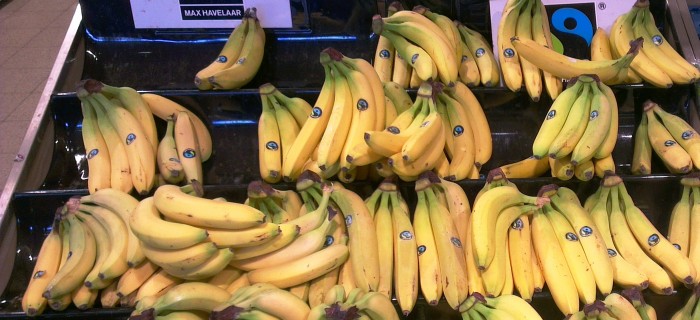The Struggle for Food Justice in Fair Trade
Food First Backgrounder, Winter 2011-2012, Vol. 17, No. 4
For decades smallholder farmers and food justice advocates have used fair trade to build collective power by combining responsible consumerism and political awareness with a fairer and more environmentally sustainable market. Changes in fair trade certification enabled large corporations to enter this market, leading to a dramatic increase in sales—now topping $5 billion globally. Unfortunately, this growth has been accompanied by lower economic returns to farmers and disturbing social and political trends that threaten the future of the movement and suggest that fair trade is not as fair as it used to be.
What is Fair Trade?
“Fair trade is a trading partnership, based on dialogue, transparency and respect, which seeks greater equity in international trade. It contributes to sustainable development by offering better trading conditions to, and securing the rights of, marginalized producers and workers—especially in the South. Fair trade organizations (backed by consumers) are engaged actively in supporting producers, raising awareness, and campaigning for changes in the rules and practice of conventional international trade.”
Fair trade emerged 70 years ago from collective organizing efforts and social movements working outside of mainstream commodity markets, long before product certification. Fair trade sought to provide marginal smallholders and artisans with access to a new market that could support their collective empowerment in four ways: 1) cooperatives, 2) pre-financing, 3) a floor price, 4) and a democratic connection between producer organizations and non-profit grassroots partners to promote literacy, food security, women’s rights, and sustainable agriculture.
Pioneer grassroots volunteer organizers, including religious associations and political groups, created alternative trade organizations (ATOs) in the 1940-50s. Several leading ATOs, such as 10,000 Villages, SERVE International, the Worldshops and Oxfam, UK’s ‘Helping-by-Selling’ project began by importing and selling handicrafts made by war refugees as a way to transform trade and aid.


 Help Food First to continue growing an informed, transformative, and flourishing food movement.
Help Food First to continue growing an informed, transformative, and flourishing food movement.




